ACM40418 Certificate IV in Veterinary Nursing
Advance Your Veterinary Career with Industry-Trusted Training and Hands-On Experience
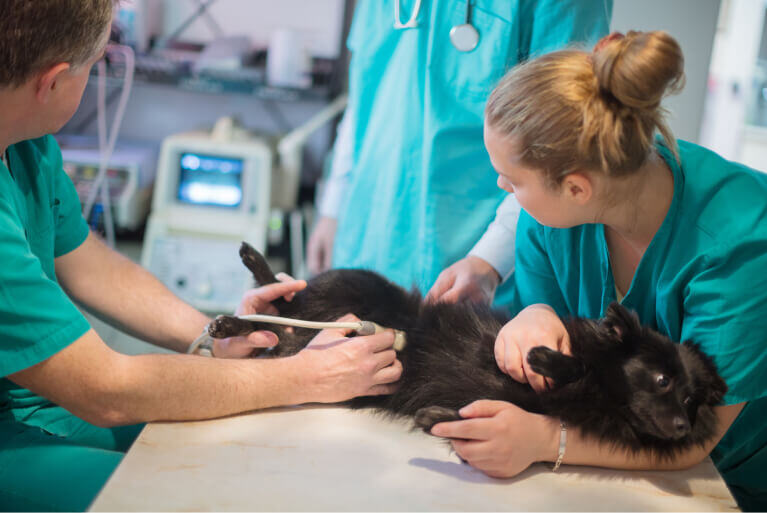

Course Highlights
%201.jpg?width=512&height=384&name=NRT_logo-1-ezgif.com-resize%20(1)%201.jpg)
%201.jpg?width=300&height=300&name=AQF_logo300x300%20(1)%201.jpg)
Why Choose This Course?
Step into the rewarding world of veterinary nursing with a course designed to set you up for success. Guided by experienced industry professionals, you'll gain hands-on skills, practical experience, and the confidence to thrive in real-world veterinary settings. Whether you’re starting fresh or building on existing qualifications, this program is your pathway to an impactful career in animal care.
- Expert Training: Learn from internationally experienced veterinary nurses who are leaders in the field.
- Placement Assistance: Assistance to find placements; should you need.
- Comprehensive Mentoring: Receive one-on-one support, regular progression meetings, and career guidance throughout your training.
- Industry Connections: Build valuable networks with industry professionals and potential employers.
- Immersive Learning: Weekly theory sessions, ensure you’re ready for real-world challenges and can apply them in the work place.
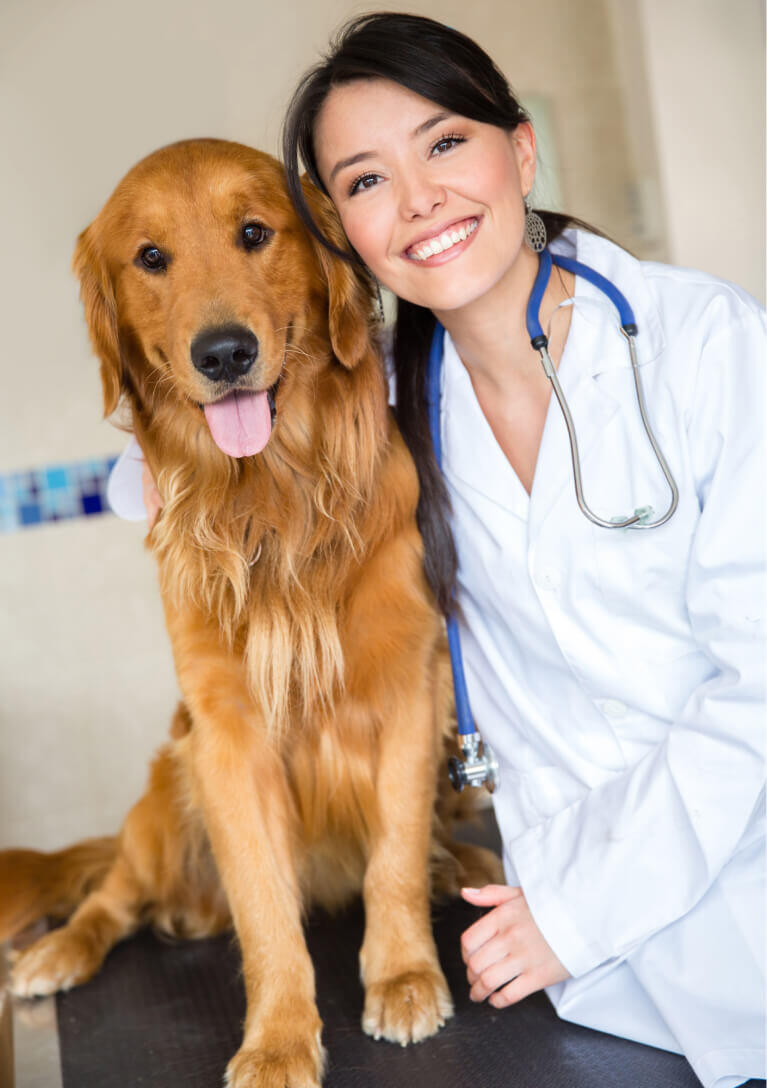
Course Details
The Certificate IV in Veterinary Nursing is tailored for those passionate about providing top-notch care for animals. Delivered by experienced veterinary professionals, this course combines theory with hands-on placements in approved veterinary practices.
You'll gain expertise in animal health, surgical assistance, client communication and so much more while immersing yourself in real-world experiences from day one.
With a focus on practical training and personalised mentoring, this program prepares you to confidently step into the veterinary field upon graduation.
- Hold a relevant Certificate III or higher qualification in an animal science discipline
OR - Demonstrate equivalent skills and knowledge in a related field, assessed on merit with supporting evidence.
Unsure if you meet the criteria? Contact us for guidance!
The course is delivered online; that combines structured theory learning, trainer-led tutorials, and hands-on experience in a real-world workplace setting.
-
Theory component is delivered online via set sessions, mentored tutorials and personalised support, also supported by
-
Practical component consists of two days per week of work-based training at an approved workplace, throughout each of the four terms, for the duration of the course.
All training and assessment is delivered directly by The Animal Academy. We do not use third-party providers to deliver training or assessment.
Work placement sites are thoroughly vetted by The Animal Academy and provide structured, supervised learning aligned to unit requirements. These sites are not considered third-party providers, but play a vital role in delivering practical learning outcomes in real-world environments.
This course is designed to be completed within 50 weeks (approximately 12 months). We break the units into blocks that help to keep you on track and progress through the course in a systematic way.
Once a block is completed you move onto the next. There are four blocks of various units.
We offer multiple start dates throughout the year. Contact us for the next intake.
Core Units:
ACMVET202 Carry out daily practice routines
This unit of competency describes the skills and knowledge required to assist in providing treatments for patients (animals) on a daily basis, to maintain practice hygiene and assist with inventory and practice security. This unit applies to new entrants to the veterinary industry who work under the supervision of a qualified veterinary nurse or registered veterinarian, in a veterinary practice.
ACMGAS307 Identify animal anatomy and physiology for animal care work
This unit of competency describes the skills and knowledge required to identify animal anatomy and physiological functions of animals. It incorporates knowledge of animal classification, animal body systems, physiological functions and external anatomical features of animals to recognise normal health. The unit applies to individuals who work primarily with mammals, but also birds and reptiles, in animal care environments.
ACMGAS308 Communicate effectively with clients and team members
This unit of competency describes the skills and knowledge required to communicate effectively with clients, a supervisor, team members and industry representatives. The unit applies to individuals who work in organisations in operational roles with some supervision.
ACMVET401 Coordinate veterinary reception duties
This unit of competency describes the skills and knowledge required to coordinate and undertake patient admission and discharge. It also includes providing initial veterinary nursing care to patients (animals) and grief support to clients (animal owners). This unit applies to individuals who work as veterinary nurses under the supervision of a registered veterinarian. Veterinary nurses who coordinate admissions and discharges need to hold and apply knowledge of animal anatomy and physiology and veterinary procedures, to triage patients, and use effective communication skills to support animal owners in grief.
ACMVET402 Apply imaging routines
This unit of competency describes the skills and knowledge required to implement and complete imaging routines, including x-rays, ultrasound and endoscopes, according to established industry sequences and practice policies and procedures. It applies to individuals who work as veterinary nurses, under the supervision of a registered veterinarian or qualified veterinary nurse with radiation operator licence in a veterinary practice. Veterinary nurses who perform imaging routines need to hold and apply specialised knowledge of animal anatomy and physiology.
ACMVET403 Perform clinic pathology procedures
This unit of competency describes the skills and knowledge required to collect biological samples and perform pathology procedures, including maintaining the integrity of samples and preparing consignments for diagnostic laboratories.
ACMVET404 Perform practice office procedures
This unit of competency describes the skills and knowledge required to perform office procedures in a veterinary practice, including maintaining veterinary supplies, controlling stock, maintaining practice accounts, generating and responding to practice correspondence.
ACMVET405 Coordinate and perform surgical nursing routines
This unit of competency describes the skills and knowledge required to coordinate surgery schedules, prepare the surgical environment and provide support for the veterinary surgeon, including before, during and after routine and non-routine surgical procedures and monitoring patients (animals) while they are under anaesthesia.
ACMVET406 Nurse animals
This unit of competency describes the skills and knowledge required to provide high quality nursing care for patients (animals) treated or housed in a veterinary practice. It includes providing advice to clients (animal owners), monitoring animals and providing animal first aid as required.
ACMVET407 Carry out medical nursing routines
This unit of competency describes the skills and knowledge required to implement medical nursing routines, including the preparation and handling of patients (animals) and equipment for specific routines.
ACMVET408 Provide nutritional advice and support for animals
This unit of competency describes the skills and knowledge to provide advice to animal owners about the nutritional requirements of specific animals, and support nutritional needs of hospitalised patients across a range of medical and surgical conditions.
ACMVET409 Provide specific animal care advice
This unit of competency describes the skills and knowledge required to provide advice to clients (animal owners) about animal health, behaviour, disease and reproduction.
ACMVET410 Carry out dental nursing procedures
This unit describes the skills and knowledge required to perform dental prophylaxis and assist with simple extractions. Dental prophylaxis involves oral examinations of the conscious and anaesthetised patient, sub- and supra-gingival tooth scaling and polishing, and the subsequent development of a homecare plan, as well as assisting in the performance of simple dental extractions. Veterinary dental nursing procedures are most often carried out on dogs and cats.
ACMVET413 Prepare for anaesthesia and monitor animal anaesthesia and analgesia
This unit of competency describes the skills and knowledge required to prepare for and monitor anaesthesia and analgesics in animals for surgical and medical procedures.
ACMVET416 Assist with the preparation of veterinary drugs and poisons
This unit of competency describes the skills and knowledge required to prepare and assist with the preparation of veterinary drugs and poisons in a veterinary practice. The unit applies to veterinary nurses who work under the supervision of a registered veterinarian in a veterinary practice. Veterinary nurses who assist with the preparation of veterinary drugs and poisons for animals need to hold and apply specialised knowledge of animal pharmaceuticals, and the relevant legislation and regulations that apply to working with veterinary drugs and poisons.
ACMWHS301 Contribute to workplace health and safety processes
This unit of competency describes the skills and knowledge required to plan, support and contribute to work health and safety processes in an animal care environment.
ACMINF301 Comply with infection control policies and procedures in animal care work
This unit of competency describes the skills and knowledge required to comply with biosecurity and infection control policies and procedures in animal care workplaces and relevant field locations. Workplaces may include veterinary practices, catteries/ kennels/ shelters, pet grooming and equine services.
Small animal elective units*
ACMSPE302 Provide basic care of birds
This unit of competency describes the skills and knowledge required to identify birds and their behavioural and physical needs and provide daily care requirements.
ACMSPE304 Provide basic care of domestic dogs
This unit of competency describes the skills and knowledge required to identify dogs and their behavioural and physical needs, and provide daily care requirements.
ACMSPE317 Provide general care of domestic cats
This unit of competency describes the skills and knowledge required to identify domestic cats and their behavioural and physical needs, and provide daily care requirements.
ACMARM405 Assist with the euthanasia of animals
This unit of competency describes the skills and knowledge required to assist with the euthanasia of animals in a safe and humane manner that complies with animal welfare, ethical and legislative requirements.
*Additional information
You will most likely have eligible credits for these electives if you have studied with The Animal Academy - we will apply these for you at the time of your application.
Through our Recognition of Prior Learning (RPL) process, your previous skills and knowledge can be assessed to fast-track your qualification. Contact us for detailed information on the process and associated fee schedule.
If you have prior course credits, please submit them during your application. This allows us to assess and adjust your course fees accordingly. For those who have completed a Certificate III in Animal Care Services, we will apply the credits at enrolment. Additional credits will be reflected in your fee structure as outlined in your enrolment offer.
Where credits have been granted it will shorten the course duration.
Please Note: We do not offer RPL for Veterinary Science Degrees against Veterinary nursing.
- Expert Training: Learn from local internationally experienced veterinary nurses and leaders in the field.
- Exclusive Placements: Gain hands-on experience in approved veterinary practices. "Have your own workplace in mind - we can approve them for you".
- Workplace Insurance: Be fully covered during your practical training and placements.
- Personalised Learning: Enjoy small group tutorials designed for tailored mentoring and focused support.
- Ongoing Support: Receive regular one-on-one progression meetings and mentoring throughout your training.
- Industry Networking: Build valuable connections with veterinary professionals to kickstart your career.
- Digital textbooks and comprehensive study resources.
- Additional materials to enhance your learning experience.
Enrolment process

Fill out the application form and hit send

Our team will call you to assess your eligibility, discuss your goals, and answer questions. Then will meet you online to discuss the next steps

Review and electronically sign your Letter of Offer
By completing the payment process for enrolment fees

For your exciting journey in animal care with access to your learning materials and orientation details
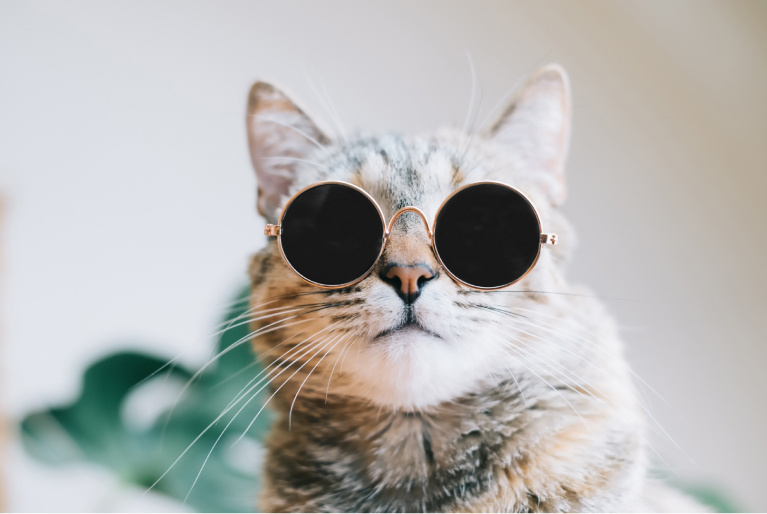
Get course guide
Experience with Animal Academy
At Animal Academy, we prioritise your personal and professional growth through interactive and supportive learning experiences:
Where Can This Qualification Take You?
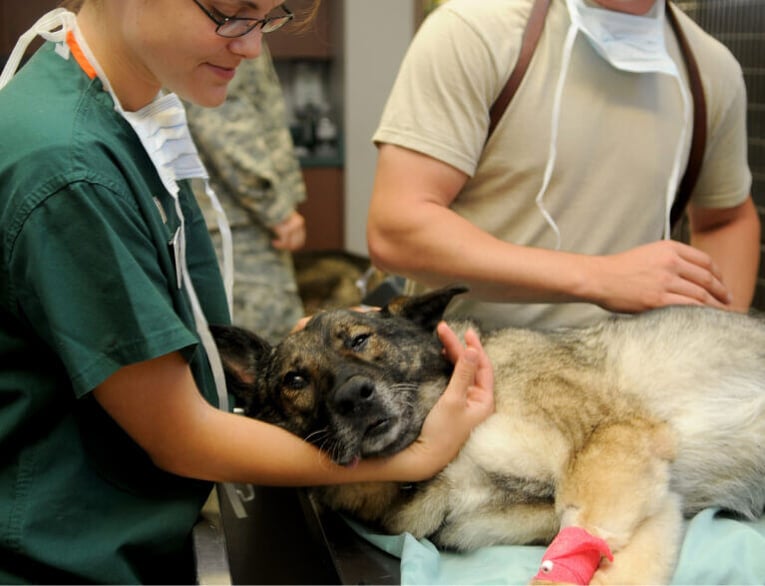
Graduates of this program go on to work in diverse and rewarding roles, including:
- Veterinary nurse
N.B. Western Australian Graduates must register with the Western Australian Veterinary Practitioners Board on graduation - Veterinary surgical assistant
- Stepping stone into the Bachelor of Animal Science or technology and beyond
Veterinary Nursing: Fulfilling, Growing, Rewarding

With veterinary services projected to grow by 15% by 2030, demand for skilled veterinary nurses is on the rise.
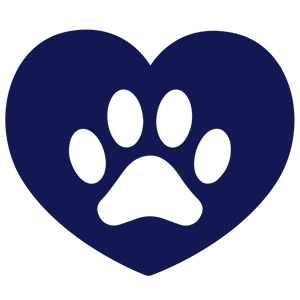
89% of veterinary nurses report high job satisfaction due to the meaningful nature of their work and the opportunity to improve animal welfare.
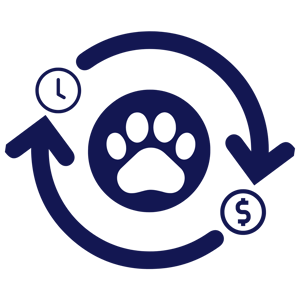
Veterinary nurses earn between $65,000 and $80,000 annually, blending passion with financial stability.
Our partners
Our strong partnerships with top animal care establishments can connect students to work placements and help graduates step into rewarding careers.

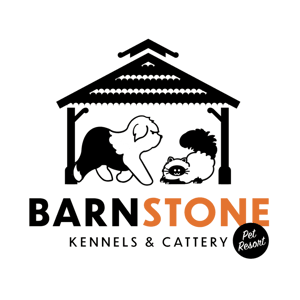


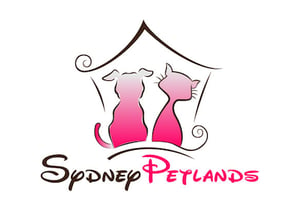
![Tallwood Logo final 2020[1] (1)](https://46702163.fs1.hubspotusercontent-na1.net/hub/46702163/hubfs/Tallwood%20Logo%20final%202020%5B1%5D%20(1).png?width=300&name=Tallwood%20Logo%20final%202020%5B1%5D%20(1).png)
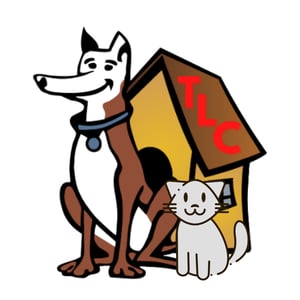

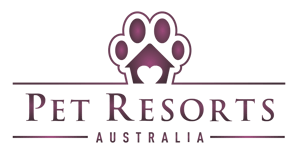
STUDENT REVIEWS
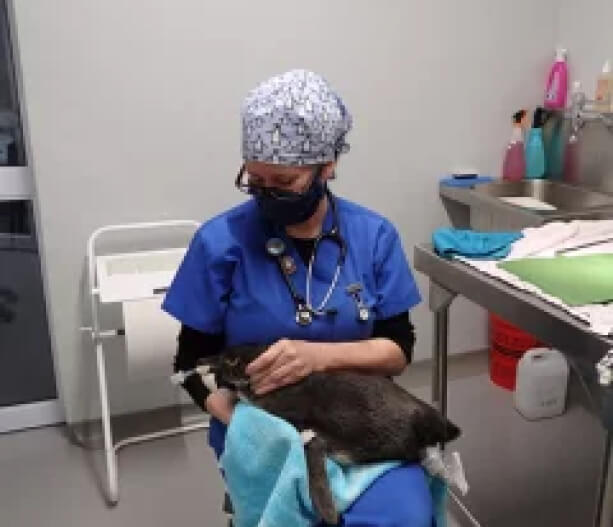
“The lectures were always engaging and interactive, which made learning so much easier. I found lecturers to be extremely approachable whenever I had doubts or unanswered questions.”

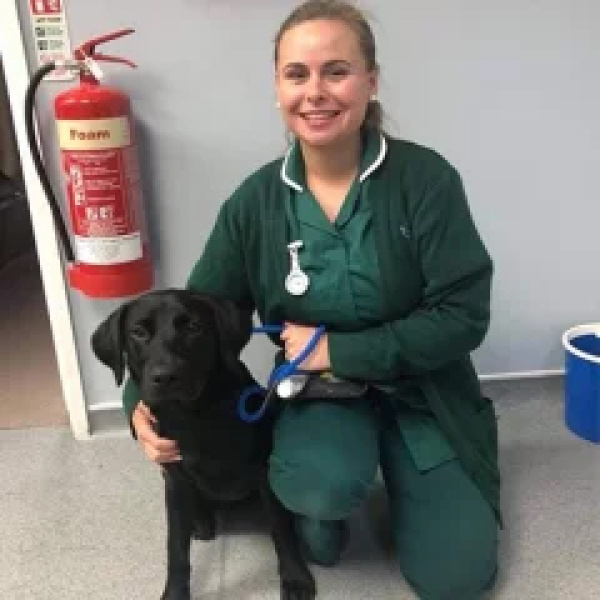
“The lectures were always well prepared and clearly structured allowing me to understand. Great patience was shown with students who were faced with academic and practical challenges throughout their studies.”

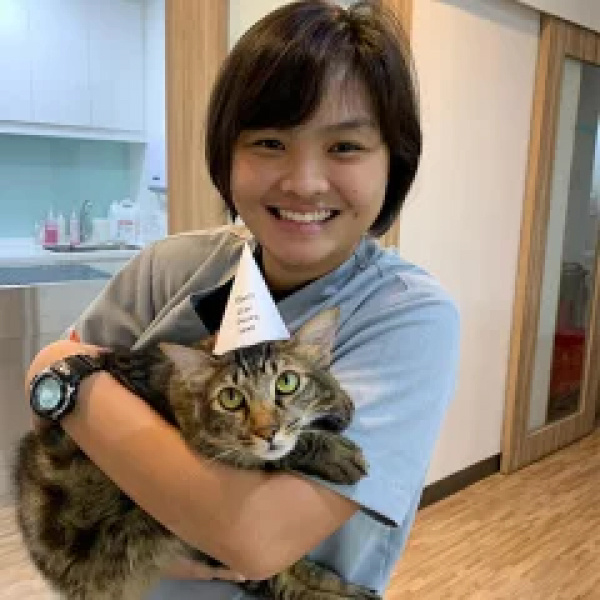
“The love, care, passion and precision in how we were taught made us strive to be the best we can be at our jobs.”

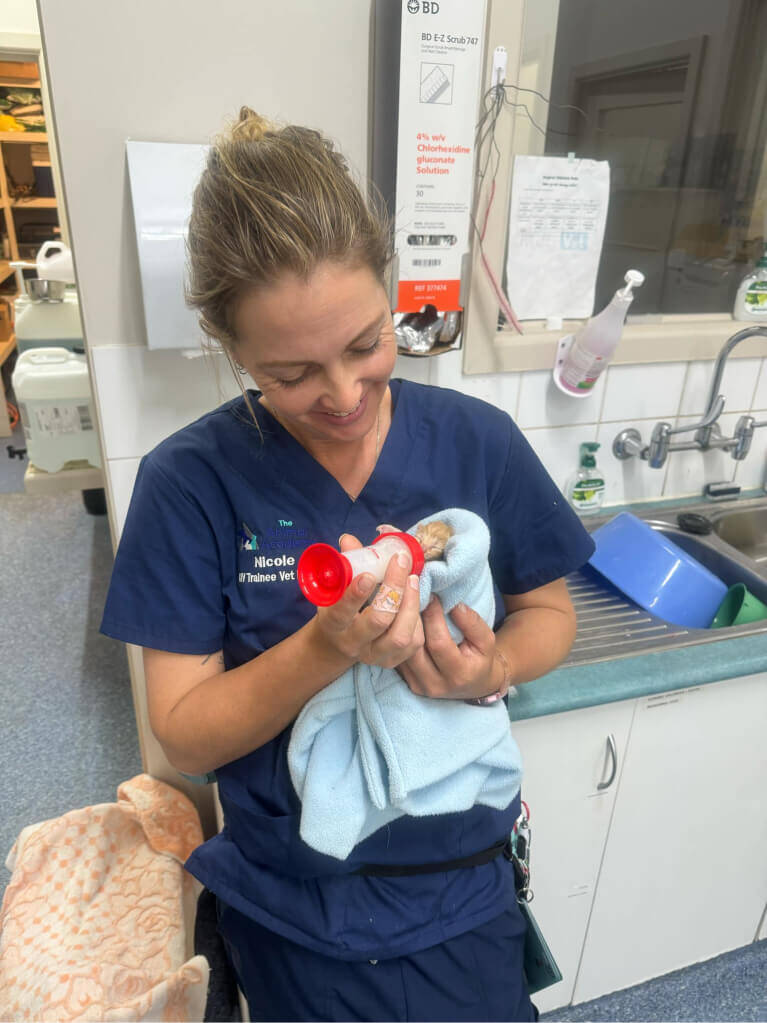
“The Animal Academy is giving us all the tools to succeed within the Animal care and nurse industry”

frequently asked questions
This course prepares you to work as a veterinary nurse, veterinary assistant, or surgical nurse in veterinary clinics and hospitals.
Yes, you must have a Certificate III qualification in an animal science discipline or demonstrate equivalent industry experience.
Absolutely! Check our partners page to find the placement closest to you.
The course is designed to be completed in 12 months.
You’ll have access to one-on-one mentoring, career guidance, and networking opportunities with veterinary professionals.
Ready to Start Your Journey?
Browse our course catalogue and find the best course for you.


